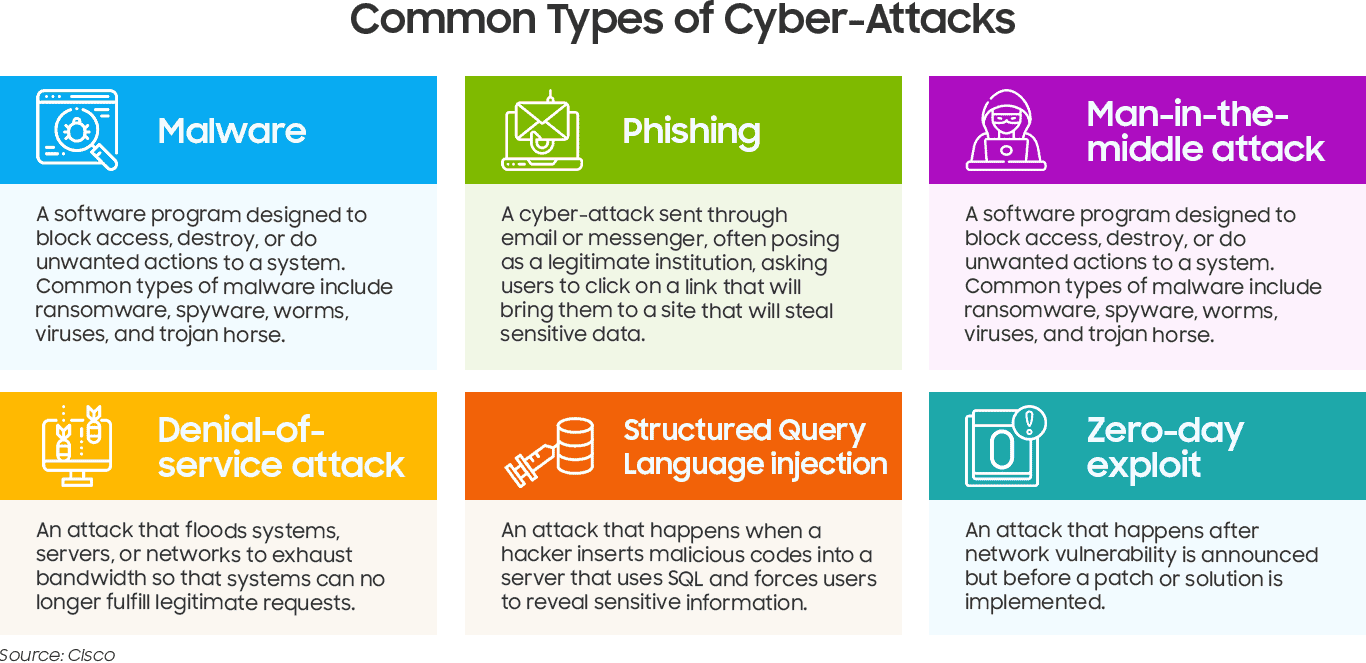Building Cyber Resiliency: An Adaptive Approach to IT Security
Cyber-attacks can mess you up worse than your worst nightmare, and building cyber resiliency is the only way to fend them off.
Just last February in Oldsmar, Florida, a hacker breached into the system of the riverside town’s water treatment plant, raising chemical levels and making water dangerous to drink.
Investigations showed that the plant did not have any firewall and was using the same password for its remote access software in an outdated Windows operating system.
Imagine having residents of the town poisoned because of irresponsible password sharing and an outdated OS.
Rising Cases of Cyber-Attacks
The rise of remote work when the COVID-19 pandemic kicked in saw an alarming increase in cyber security attacks.
The United States Federal Bureau of Investigation recorded a 300% increase in cyber-attacks since the pandemic began.
A Business Line report also showed a 67% increase in cyber-attacks targeting different organisations in India, one of the top destinations for outsourcing.
These reports point to the increase of internet connectivity and the rise of remote work setup as catalysts for the increased attacks.

Security challenges of remote work
The rise of remote work poses many unprecedented challenges in implementing IT security for businesses.
Teams working at home use their personal wi-fi connections that – networks outside a business’ firewall that, in industry standards, may not be thoroughly secure.
There is also the matter of endpoint security or protecting work laptops, desktops, and mobile devices from threats like viruses, malware, or unauthorised access.
Disruption due to the lack of business continuity cyber resiliency plan may even resort to the loss of important or sensitive information.
All of these, if not mitigated, may put businesses in a place where it is very vulnerable to cyber-attacks.
A Case of Cyber Resilience
While the threat of cyber security attacks is real, solutions for building cyber resilience are mainly accessible, even for businesses with offshore teams.
In the Philippines, businesses with teams in offshore outsourcing firm Emapta were among the few ones to experience a smooth transition to remote work at the onset of the pandemic.
In just a week, at least 70% of their teams were capable of securely working at home, complete with company-provided devices.
A remote-ready IT environment with proper business continuity and cyber-attack recovery plans was key to this transition.
Emapta has always been “hybrid” when it comes to their client’s teams, even long before the pandemic, making it easy to mount remote work arrangements.
Adaptive Solutions: Resilience in Security
Emapta has always underscored the importance of building cyber resiliency by making huge investments in its IT capabilities, especially in terms of security.
A dedicated annual security budget allows Emapta to manage IT infrastructure, endpoint anti-virus, patch management, data loss protection solutions, and vulnerability assessment.
The IT security team performs regular penetration testing, creating a data processing environment compliant with GDPR, ISO270001, PCI-DSS and HIPAA standards.
As a result, businesses that have partnered with Emapta have experienced zero breaches and zero downtime in over a year of hybrid work arrangements,
With 14 offices across the country and more “home offices,” Emapta has also engineered adaptive IT solutions to secure its clients and partners.
Teams working at home, though connected with personal wi-fi, can still leverage the Emapta’s secure and high-speed connection through the company’s own VPN.
Connecting with Emapta’s VPN allows businesses to have remote teams that are protected by enterprise-grade IT security, just like teams working at the office.
Each workstation has remote monitoring and management tools that allow Emapta’s IT security team to monitor, support, and make sure all of them are up to date and patched.
To complement its pandemic-proof redesigned network topology, Emapta has a suite of security policies even at the office.
All offices of Emapta have 24/7 security personnel, Emapta offices are secured with biometrics access and monitored with CCTV.
Looking ahead: The ever-changing IT landscape
As the times roll on, Emapta continues to innovate its IT and technology to provide and maintain a secure data processing environment.
Emapta Chief Technology Officer Henry Vassall Jones said one of the targets right now is to implement a Security Operations Centre – a facility for security analysts, engineers, and managers to monitor, detect, analyse, and respond to cybersecurity incidents.
He said the goal is to always be one step ahead when it comes to giving clients the safest and most secure IT environment.
“I think that the next evolution of work is a hybrid and mobile — finding a system that will enable the talent to both report to the office for a fixed period each week and work from home or any other area in the other days,” said Henry.
He said mobile workstations are all about cloud-based technology and security, which means having to tweak the company’s standard operating environment.











